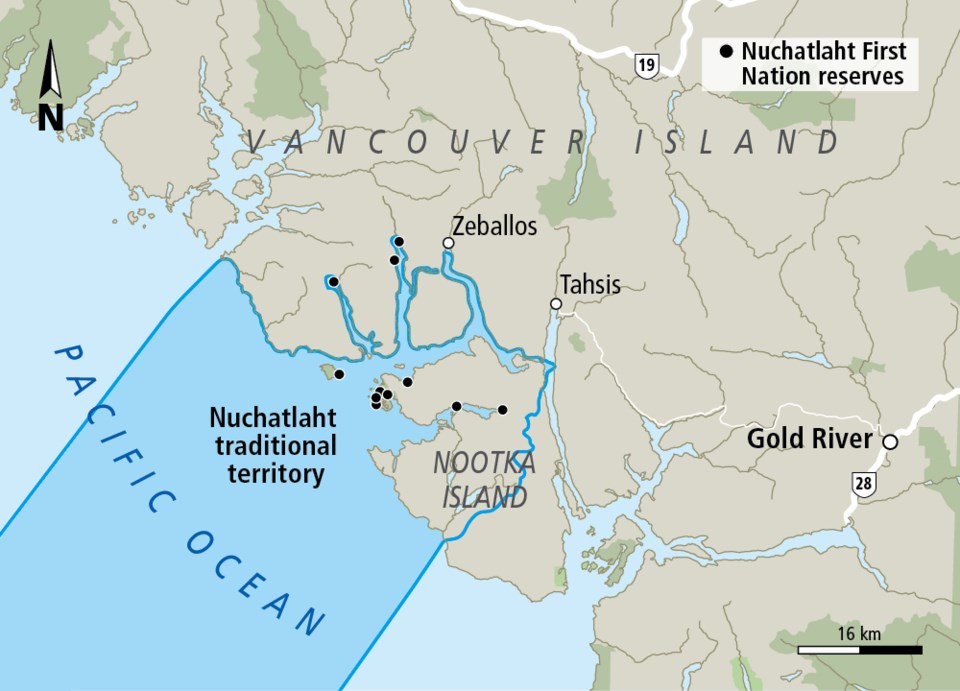A small Vancouver Island First Nation filed a historic aboriginal-title claim Friday after years of frustration with the treaty process and logging in their territory.
“Nuchatlaht has spent many frustrating years of discussions at the treaty table and other processes trying to protect our lands and the health of our people,” said hereditary chief Walter Michael in a statement.
He was joined Friday by elders and members of the Zeballos-area First Nation on the B.C. Supreme Court steps in Vancouver, where a notice of civil claim was filed. The Nuchatlaht are part of the Nuu-chah-nulth Tribes, which are in an ongoing treaty process with the provincial government.
“Successive governments have failed to give Nuchatlaht serious iisaak [respect] for their rights and title,” Michael said.
The claim calls for the provincial and federal governments to recognize aboriginal title to the Nuchatlaht’s territory on the west coast of Vancouver Island, covering a portion of Nootka Island and the surrounding area. It also calls for Western Forest Products to stop logging in the area.
“The land has been devastated by logging,” said Campbell River lawyer Jack Woodward, who is working on the case. “You know how [the Islamic State] recently destroyed Palmyra? This is the same. The [culturally modified] trees that are an archeological record have been trashed right before their eyes.”
Woodward said the claim is a direct application of the precedent-setting 2014 Tsilhqot’in decision, in which the Supreme Court of Canada for the first time recognized a First Nation’s title to a specific tract of land. The 8-0 decision essentially made it easier for First Nations to establish title over lands that they regularly used for hunting, fishing and other activities.
Woodward believes the Nuchatlaht claim is the first on Vancouver Island since the Tsilhqot’in decision, and possibly the first on the West Coast. “There are about a half a dozen others around B.C. right now,” he said.
The Nuchatlaht have occupied their territory for several generations and said that prior to government interference they were able to use and manage their land and resources sustainably.
“This continuous, sustainable management cycle protected the land and resources and sustained the Nuchatlaht people. This system was interrupted when wasteful industrial systems were implemented by B.C. and Canada during the last 150 years,” the First Nation said in a statement. “These actions have enriched corporations, but adversely impacted Nuchatlaht sacred land and food sources while leaving few benefits for the Nuchatlaht people.”
The Nuchatlaht First Nation has about 150 members and a small reserve. There are several historic village sites in the area where members and their ancestors gathered food and sheltered throughout the seasons.
The province is aware of the claim but has yet to be served with notice of its filing. It is gathering information on the issues in the meantime.



